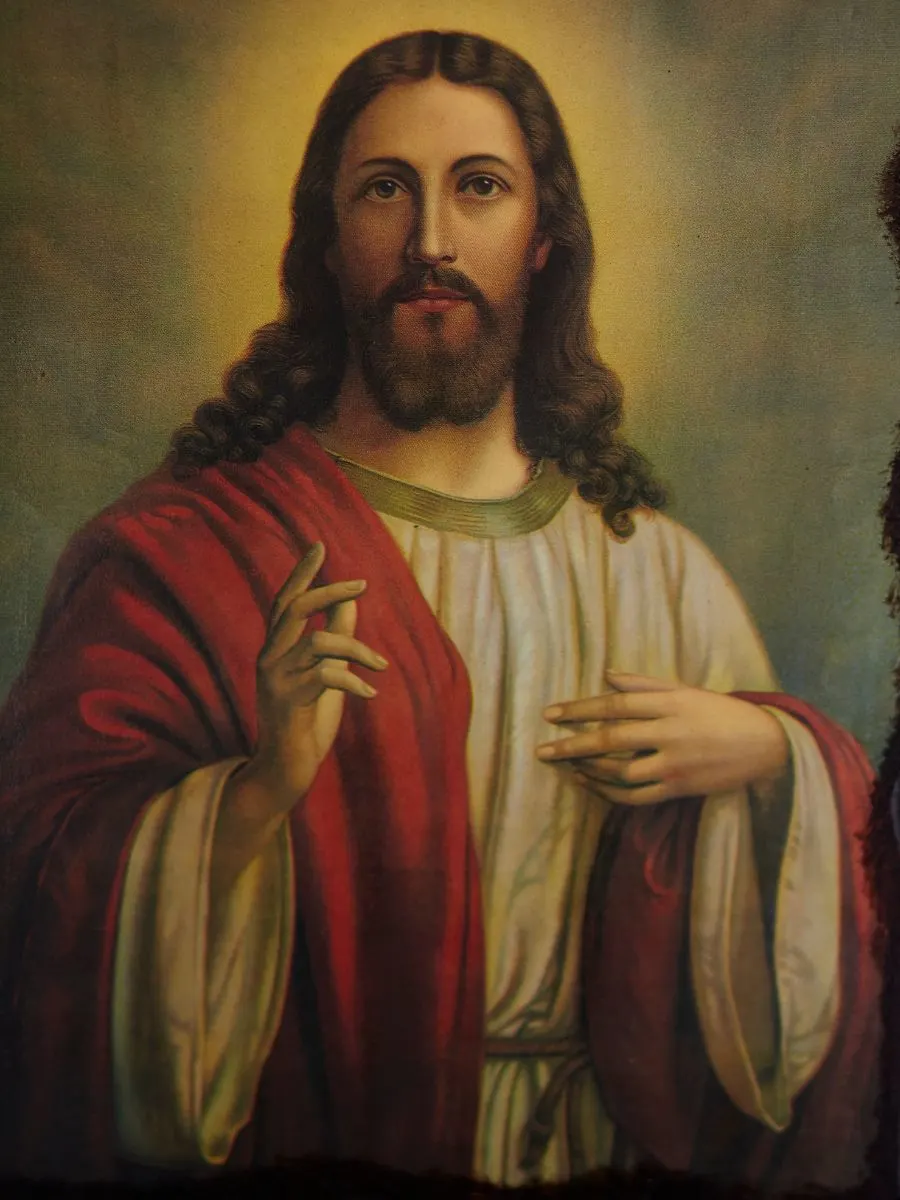Did Jesus Have a Tattoo?
The question of whether Jesus had a tattoo often arises from a passage in the book of Revelation, specifically Revelation 19:16, which states, “On his robe and on his thigh he has this name written: King of kings and Lord of lords.”
This verse has sparked debates and varied interpretations over time.
To understand this topic fully, we need to delve into historical, cultural, and theological contexts.
Historical and Cultural Context
In ancient times, the practice of tattooing varied significantly across cultures.
Many ancient civilizations used tattoos for religious, cultural, and identification purposes. However, within Jewish culture, tattoos were explicitly forbidden by Levitical law.
Leviticus 19:28 states, “Do not cut your bodies for the dead or put tattoo marks on yourselves. I am the LORD.”
This command was part of the broader Mosaic Law, which aimed to set the Israelites apart from surrounding pagan practices.
Given that Jesus was a devout Jew who fulfilled the Mosaic Law (Matthew 5:17), it is unlikely he would have had a tattoo.
The prohibition in Leviticus was clear, and Jesus’ mission was to fulfill the law rather than to break it.
Symbolism in Revelation
The Book of Revelation is renowned for its symbolic language.
The imagery used throughout the text is often not meant to be taken literally.
For instance, Revelation describes Jesus with eyes like a flame of fire and a sword coming out of his mouth—clearly symbolic rather than literal descriptions.
The mention of “King of kings and Lord of lords” written on Jesus’ robe and thigh can be interpreted similarly.
Some scholars suggest that this could refer to a banner or a sash worn by Jesus, extending from his shoulder to his thigh, inscribed with his title.
Alternatively, it could mean the words were written on the part of his robe covering his thigh rather than on his skin directly.
Interpretations of Revelation 19:16
Several theories attempt to explain the description in Revelation 19:16.
One interpretation suggests that the phrase refers to an inscription on Jesus’ clothing or armor.
Ancient kings often had their titles woven into their garments or engraved on their weapons, signifying their authority and status.
Thus, the inscription could be seen on a part of Jesus’ attire rather than as a tattoo on his body.
Another theory posits that the original text of Revelation might have been misinterpreted due to translation errors.
Some scholars suggest that the Hebrew words for “banner” (dagel) and “thigh” (ragel) are similar, which could have led to a copying error, thereby reading “thigh” instead of “banner.”
The Jewish Law on Tattoos
Jewish law’s stance on tattoos is unequivocal, stemming from a specific commandment in the Torah.
Leviticus 19:28 states, “Do not cut your bodies for the dead or put tattoo marks on yourselves. I am the LORD.”
This directive was part of the broader Mosaic Law given to the Israelites to distinguish them from neighboring pagan cultures and to maintain their holiness and distinctiveness as God’s chosen people.
The prohibition against tattoos was specifically aimed at preventing the Israelites from adopting the mourning rituals of pagan societies, which often involved body markings and cuts as a way to honor or appease their gods or deceased loved ones.
This command was not merely about prohibiting body art for aesthetic reasons but was deeply rooted in religious and cultural contexts.
By forbidding tattoos, the Law sought to ensure that the Israelites would not emulate the idolatrous practices of the surrounding nations, thereby preserving their unique identity and purity as a people set apart for God.
Jesus, being an observant Jew who lived in accordance with the Mosaic Law, would have adhered strictly to this prohibition. Throughout his life and ministry, Jesus emphasized the importance of fulfilling the Law rather than abolishing it.
In Matthew 5:17-18, Jesus states, “Do not think that I have come to abolish the Law or the Prophets; I have not come to abolish them but to fulfill them. For truly I tell you, until heaven and earth disappear, not the smallest letter, not the least stroke of a pen, will by any means disappear from the Law until everything is accomplished.”
This adherence to Jewish law underscores the improbability that Jesus would have had a tattoo, as it would have directly contradicted the commandments he came to fulfill.
The cultural and religious significance of this prohibition cannot be overstated. In ancient Israel, the body was considered a creation of God and, thus, sacred.
Altering the body with permanent marks was seen as a desecration of God’s handiwork. This belief is echoed in other parts of Jewish scripture and tradition, reinforcing the idea that the body should remain as God created it. This perspective was integral to maintaining the community’s sanctity and its relationship with God.
Furthermore, Jewish interpretations of Levitical law have consistently upheld this prohibition.
Rabbinic teachings and later Jewish legal texts, such as the Talmud, continue to affirm the prohibition against tattoos.
This consistency in interpretation over centuries highlights the enduring importance of this commandment within Jewish religious practice.
In contemporary Judaism, particularly within Orthodox and Conservative communities, the prohibition against tattoos remains a significant aspect of religious observance.
While some modern Jews may choose to get tattoos, often for reasons unrelated to ancient mourning rituals, traditional Jewish teachings continue to discourage the practice.
The historical context and theological implications of the Levitical commandment still resonate, reminding adherents of their commitment to the values and laws that define their faith.
The New Testament Perspective
The New Testament offers a perspective on how believers should treat their bodies, emphasizing the importance of honoring God through physical self-care.
While the New Testament does not specifically address the issue of tattoos, it provides principles that can be applied to discussions about body modifications.
1 Corinthians 6:19-20 is often cited in these discussions:
“Do you not know that your bodies are temples of the Holy Spirit, who is in you, whom you have received from God? You are not your own; you were bought at a price. Therefore honor God with your bodies.”
This passage highlights the belief that our bodies are sacred, dwelling places of the Holy Spirit.
Therefore, any action taken with our bodies should reflect this sacredness and honor God.
This principle extends beyond tattoos to any practice that involves altering or marking the body.
The idea is that believers should consider whether their actions are respectful and glorifying to God.
Tattoos, while not explicitly mentioned, can be seen through this lens.
The decision to get a tattoo should be weighed against the broader principle of honoring God with one’s body.
Moreover, 1 Corinthians 10:31 advises, “So whether you eat or drink or whatever you do, do it all for the glory of God.”
This verse underscores that all actions, including those involving our bodies, should aim to glorify God. When considering a tattoo, a believer might ask whether it serves to honor God or detract from their witness to Him.
The New Testament also speaks against conforming to worldly standards in Romans 12:2, which states, “Do not conform to the pattern of this world, but be transformed by the renewing of your mind.”
This exhortation can be applied to the debate on tattoos, suggesting that believers should critically evaluate cultural trends and practices, including body modifications, to ensure they align with their faith and values.
In the context of Christian freedom, Paul writes in 1 Corinthians 10:23, “I have the right to do anything,” you say—but not everything is beneficial. “I have the right to do anything”—but not everything is constructive. This balance of freedom and responsibility is crucial.
While Christians may have the liberty to get tattoos, they must consider whether it is beneficial and constructive for their spiritual growth and testimony.
In summary, while the New Testament does not explicitly mention tattoos, it provides guiding principles for believers to honor God with their bodies, to glorify God in all they do, and to avoid conforming to worldly patterns.
These principles offer a framework for evaluating whether getting a tattoo aligns with one’s faith and dedication to God.
Modern Christian Views on Tattoos
Today, Christian views on tattoos vary widely.
Some Christians believe that the prohibition in Leviticus still applies, arguing that tattoos are worldly and contrary to the call to holiness.
Others, however, contend that the Old Testament law does not bind Christians and that tattoos can be acceptable if they do not conflict with one’s faith and are not associated with pagan rituals.
Takeaway
In conclusion, it is highly unlikely that Jesus had a tattoo, given the historical and cultural context of Jewish law and the symbolic nature of the book of Revelation.
The inscription “King of kings and Lord of lords” on his thigh in Revelation 19:16 is best understood as a symbolic representation of his divine authority rather than a literal tattoo.
Modern interpretations vary, but the consensus among scholars leans towards a figurative understanding of this imagery.
